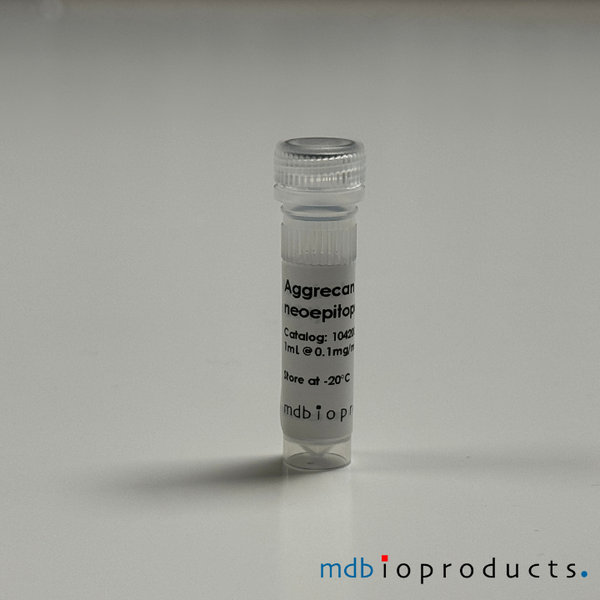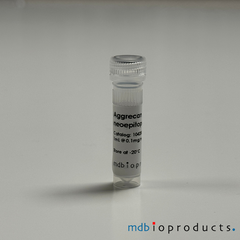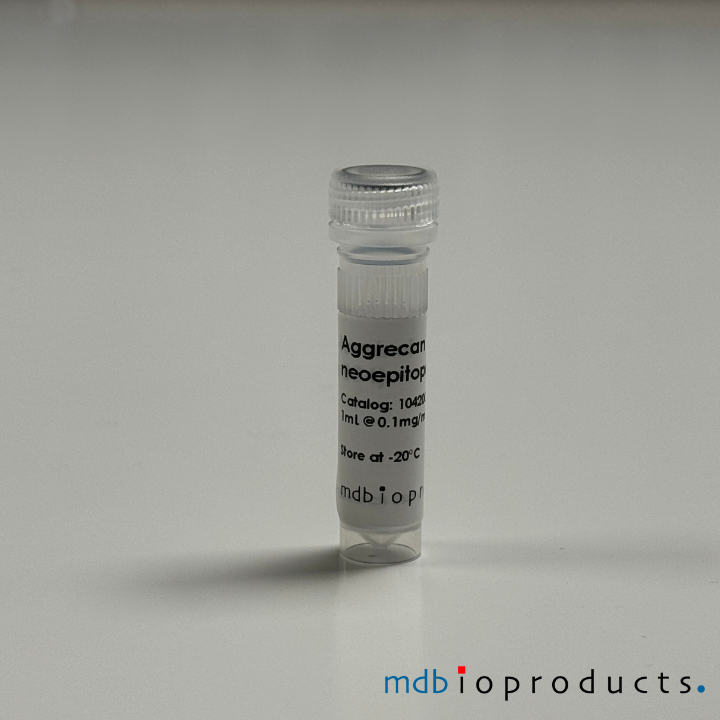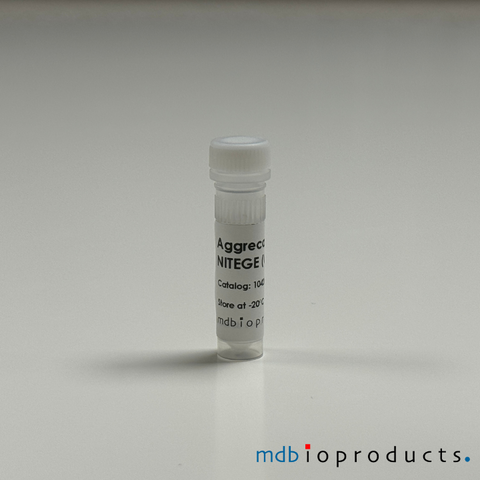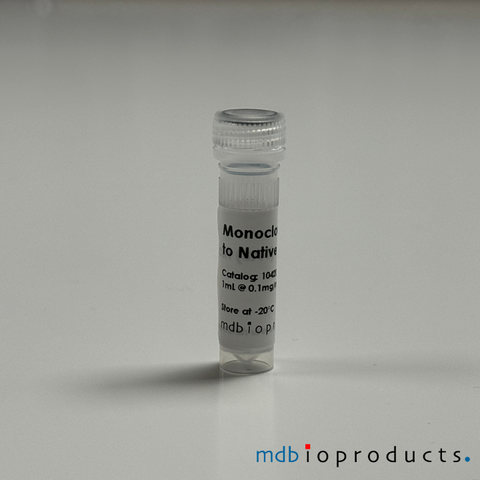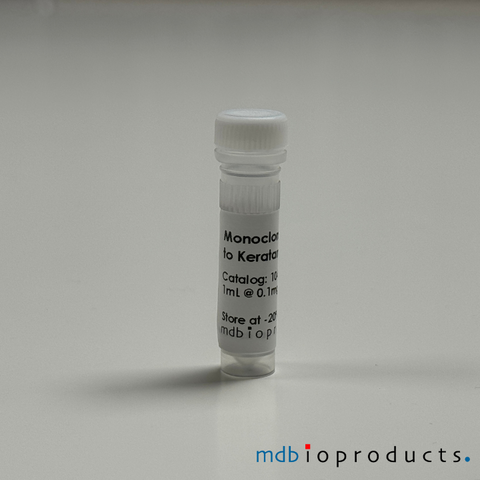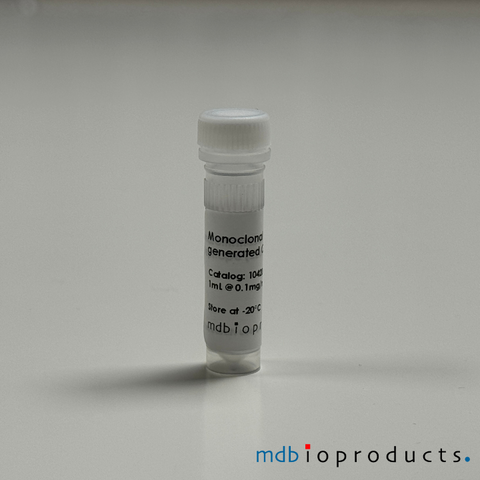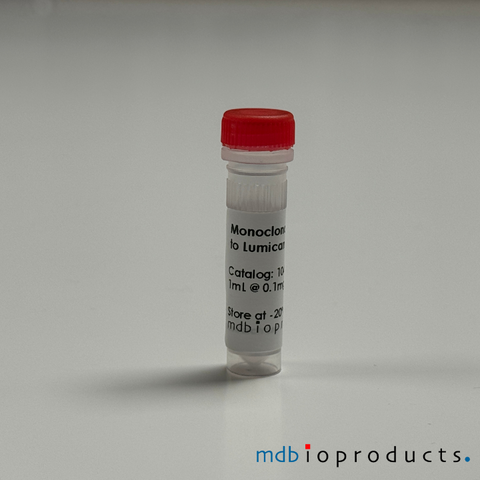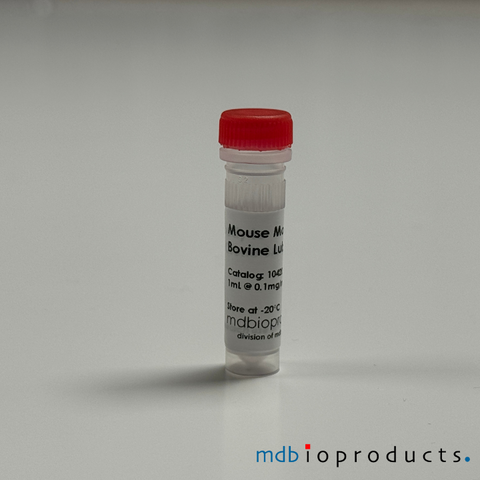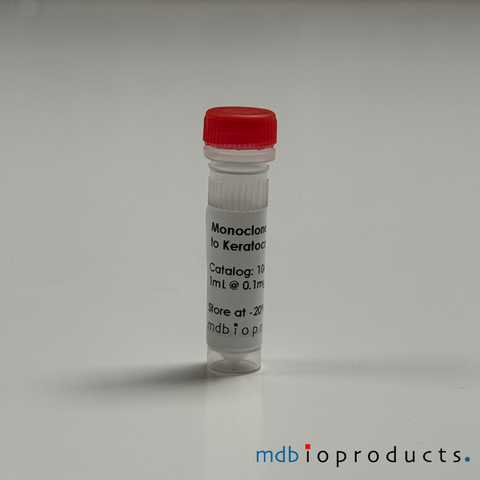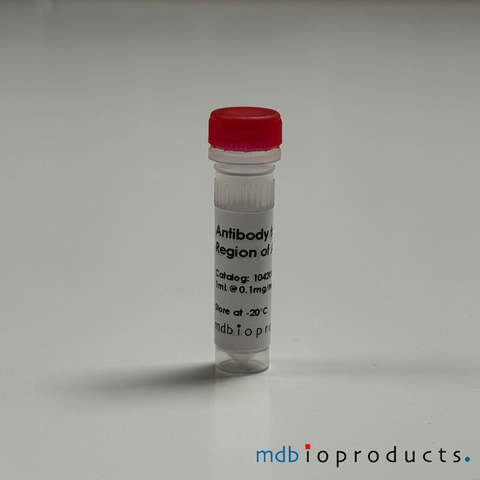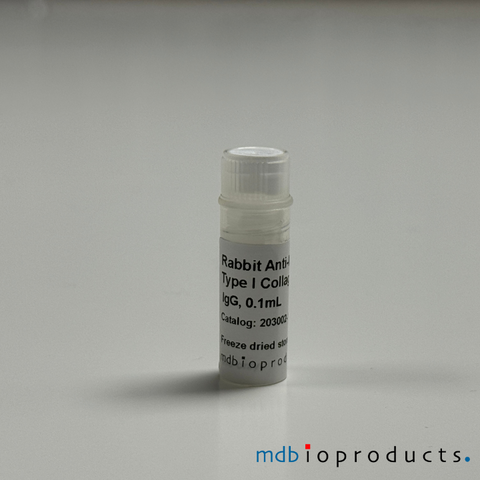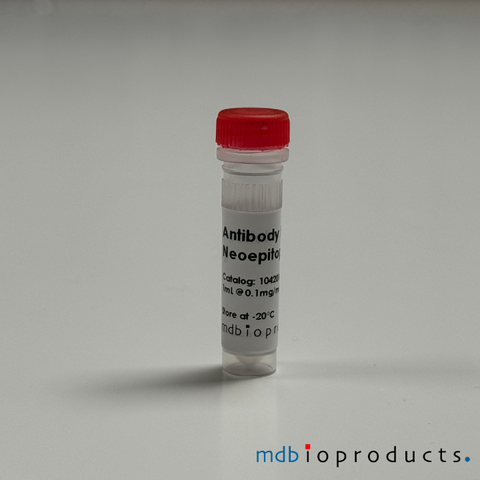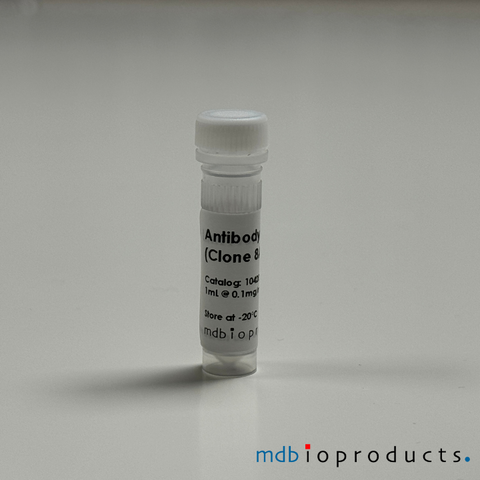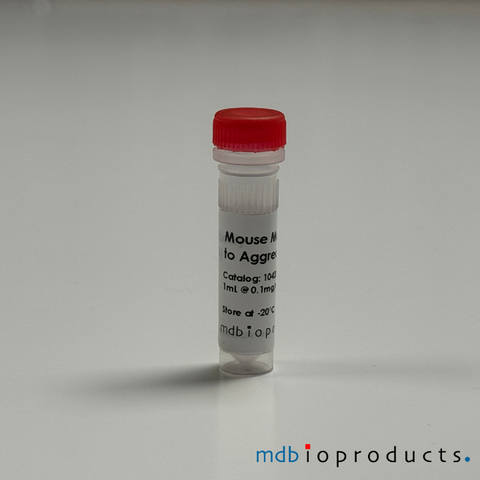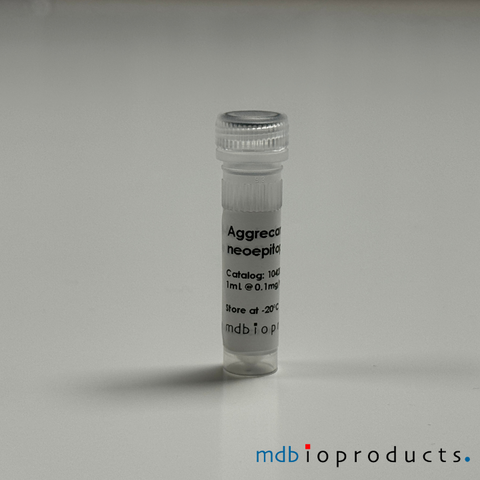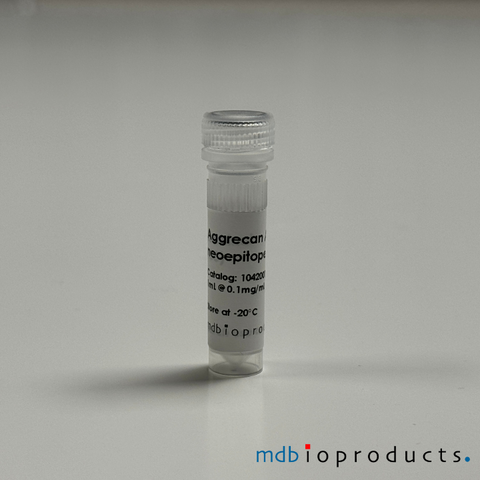Aggrecan Antibody, N-terminal neoepitope DIPEN, 100ug
Aggrecan monoclonal antibody to N-terminal neoepitope DIPEN (mouse, clone BC-4). Proteoglycans are categorized depending upon the nature of their glycosaminoglycan chains (chondroitin sulfate, dermatan sulfate, heparin sulphate and keratin sulfate) as...
Antibodies
1042002
Aggrecan monoclonal antibody to N-terminal neoepitope DIPEN (mouse, clone BC-4).
Proteoglycans are categorized depending upon the nature of their glycosaminoglycan chains (chondroitin sulfate, dermatan sulfate, heparin sulphate and keratin sulfate) as well as characterized by size.
Aggrecan is a large aggregating proteoglycan of articular cartilage. It is found also in aorta tissue, discs, tendons and in the perineuronal net. It is responsible for hydrating cartilage, giving it compressibility and resilience during joint loading, thereby playing a major role in the normal function of cartilage. Depletion of glycosaminoglycan bearing aggrecan fragments is one of the earliest events in cartilage destruction.
References/Citations:
Belliveau, C., Rahimian, R., Fakhfouri, G., Hosdey, C., Simard, S., Davoli, M. A., ... & Mechawar, N. (2024). Evidence of microglial involvement in the childhood abuse-associated increase in perineuronal nets in the ventromedial prefrontal cortex. BioRxiv, 2024-03.
Dupuis, L. E., Nelson, E. L., Hozik, B., Porto, S. C., Rogers-DeCotes, A., Fosang, A., & Kern, C. B. (2019). Adamts5−/− mice exhibit altered aggrecan proteolytic profiles that correlate with ascending aortic anomalies. Arteriosclerosis, Thrombosis, and Vascular Biology, 39(10), 2067-2081.
Todorov, A., Kreutz, M., Haumer, A., Scotti, C., Barbero, A., Bourgine, P. E., ... & Martin, I. (2016). Fat-derived stromal vascular fraction cells enhance the bone-forming capacity of devitalized engineered hypertrophic cartilage matrix. Stem cells translational medicine, 5(12), 1684-1694.
Peffers, M. J., Thornton, D. J., & Clegg, P. D. (2016). Characterization of neopeptides in equine articular cartilage degradation. Journal of Orthopaedic Research, 34(1), 106-120.
Mori, Y., Saito, T., Chang, S. H., Kobayashi, H., Ladel, C. H., Guehring, H., ... & Kawaguchi, H. (2014). Identification of fibroblast growth factor-18 as a molecule to protect adult articular cartilage by gene expression profiling. Journal of Biological Chemistry, 289(14), 10192-10200.
Russell, T. M., & Johnson, B. J. (2013). L yme disease spirochaetes possess an aggrecan‐binding protease with aggrecanase activity. Molecular microbiology, 90(2), 228-240.
Scotti, C., Tonnarelli, B., Papadimitropoulos, A., Scherberich, A., Schaeren, S., Schauerte, A., ... & Martin, I. (2010). Recapitulation of endochondral bone formation using human adult mesenchymal stem cells as a paradigm for developmental engineering. Proceedings of the National Academy of Sciences, 107(16), 7251-7256.
Supporting Literature: Chamberland, A., Wang, E., Jones, A. R., Collins-Racie, L. A., LaVallie, E. R., Huang, Y., ... & Yang, Z. (2009). Identification of a novel HtrA1-susceptible cleavage site in human aggrecan: evidence for the involvement of HtrA1 in aggrecan proteolysis in vivo. Journal of Biological Chemistry, 284(40), 27352-27359.
Little, C. B., Hughes, C. E., Curtis, C. L., Janusz, M. J., Bohne, R., Wang-Weigand, S., ... & Caterson, B. (2002). Matrix metalloproteinases are involved in C-terminal and interglobular domain processing of cartilage aggrecan in late stage cartilage degradation. Matrix biology, 21(3), 271-288.
Caterson, B., Flannery, C. R., Hughes, C. E., & Little, C. B. (2000). Mechanisms involved in cartilage proteoglycan catabolism. Matrix Biology, 19(4), 333-344.
Product Insert (PDF) - Informational use only. Please refer to insert included with product.
Specifications:
- Immunogen: DIPEN synthetic peptide conjugate.
- Clone: BC-4
- Host: Mouse
- Myeloma: x63-Ag8.653
- Isotype: IgG1
- Light Chain type: kappa
- Specificity: Recognizes the N-terminal neoepitope sequence (...DIPEN) generated at the “MMP cleavage site” after MMP catabolism in the interglobular domain of aggrecan between amino acids ..PEN341 and 342FFG.
- Cross-reactivity: This antibody cross-reacts with human, Rat, guinea pig, horse, and Pig.
- Purity: Affinity purified on protein G
- Form: Liquid, 1 mL/vial
- Concentration: 0.1 mg/mL

